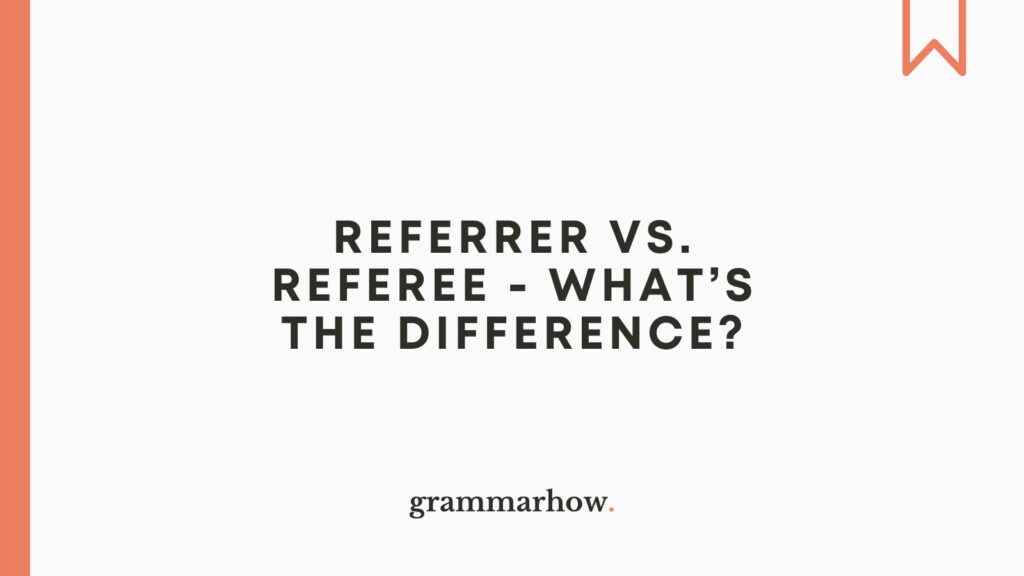There’s a difference between “referrer” and “referee” that might not be all that clear at first.
Luckily, this article is here to help if you struggle trying to figure them out.
Referrer vs. Referee – What’s the Difference?
A referrer is someone who referred you. It shows they’ve recommended you (i.e. “he is the referrer of the company”). A referee is someone who is referred or invited to a program by someone else. For example, “she is the new referee.”
Here are some more examples to help you out:
- I would like to speak to the referrer to figure out why they chose me.
- What is the referee going to do with this new job? I hope they figure that out soon.
Using the “-er” suffix after “refer” suggests that someone is referring other people to something.
The “-ee” suffix after “refer” suggests that someone is referred by others.
That’s the main difference between the two forms.
Do you want to know more about each phrase? In the rest of the article, we’ll take a closer look at how you should use both.
Referrer
The word referrer means that someone refers other people or recommends them to a program.
It’s common for brand ambassadors and bosses to be “referrers” in most professional contexts.
For example:
- Mr. Danwell is one of the referrers of this scheme. If you have any questions, you should speak to him.
- I need you to be the referrer on my resume. Do you mind if I include your name?
The definition of “refer,” according to The Merriam-Webster Dictionary, is “to think of, regard, or classify within a general category or group.”
Unfortunately, The Merriam-Webster Dictionary doesn’t have a direct entry for “referrer.” After all, it’s an extension of the verb “to refer,” where you add the “-er” suffix.
However, “refer” and “referrer” are almost identical in meaning. Adding the “-er” suffix simply attributes the verb to a specific person.
- I am the referrer because I refer people.
Referee
A referee works slightly differently from a referrer. Another party refers a “referee” to a program from an outside source.
For example:
- Sharon is the referee here. I think Benji was the one that brought her along.
- They are both acting as referees because of the referral they received from us.
The definition of “referee,” according to The Merriam-Webster Dictionary, is “one to whom a thing is referred.”
Unlike “referrer,” “referee” gets its own entry. This shows it’s a word in English and the “-ee” suffix changes the meaning of “refer” enough to matter.
The “-ee” suffix means you add a verb’s effect to someone. It shows that someone else carries out the action.
- You are the referee because I referred you.
Conclusion
“Referrer” suggests that someone refers people to programs. It’s a job given to ambassadors and representatives of organizations (in professional contexts).
“Referee” suggests that another party has referred someone. Usually, a referee is not directly involved with a company. You will instead bring them in from the outside.

Martin holds a Master’s degree in Finance and International Business. He has six years of experience in professional communication with clients, executives, and colleagues. Furthermore, he has teaching experience from Aarhus University. Martin has been featured as an expert in communication and teaching on Forbes and Shopify. Read more about Martin here.

